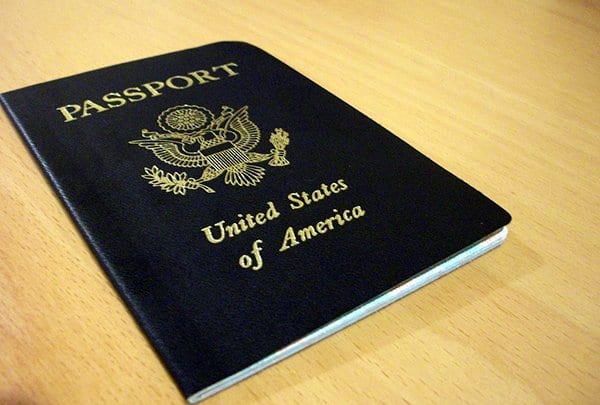
Johnathan Meyers | Tactical Investor
Unlocking the Mystery: The Astonishing Surge in US Citizenship Renunciations
This content was originally published on April 25, 2017, but it has been continuously updated over the years, with the latest update conducted on September 2023.
In recent years, there has been a notable trend in the United States—a growing number of Americans are relinquishing their US citizenship. This phenomenon, often accompanied by complex financial and personal considerations, raises important questions about the reasons behind this surge in renunciations. In this comprehensive article, we will delve into the factors driving the record numbers of Americans giving up their US citizenship and the implications of this trend.
In the shadows of global headlines and within the narratives of individual lives, an extraordinary phenomenon has been quietly unfolding over the past decade—the unprecedented surge in Americans renouncing their US citizenship. This isn’t merely a matter of numbers; it’s a complex, often enigmatic, societal shift that demands our attention.
Picture this: an increasing number of Americans, from all walks of life, are willingly and deliberately severing their ties to the nation they once proudly called home. Why? The motivations behind this extraordinary wave of renunciations are as diverse as the citizens themselves. It’s a journey that explores the very essence of what it means to be a US citizen.
But what drives someone to make such a profound and life-altering decision? It’s a question that opens the door to a world of financial intricacies, international politics, and deeply personal considerations. From the labyrinthine complexities of the US tax system to the global impact of citizenship-based taxation, we’re about to embark on a journey to unravel the mysteries behind the statistics.
Imagine grappling with a tax code that extends its reach far beyond the borders of the United States. US citizens, wherever they reside, find themselves ensnared in a unique system that imposes taxes on their worldwide income. It’s a financial embrace that can lead to double taxation, a burden few are willing to bear willingly.
And then there’s the intricate web of legislation known as FATCA, which casts its net globally to ensure that American taxpayers aren’t hiding their wealth overseas. While its intentions may be noble, the unintended consequences are complex, as foreign financial institutions navigate the maze of reporting requirements and US citizens abroad wrestle with limited access to essential financial services.
This journey into the world of renunciations also unveils the political undercurrents that shape the decisions of many. Dissatisfaction with government policies, disagreements with leadership, and a desire to make a powerful statement against the status quo—are among the catalysts that propel individuals toward the renunciation process.
But renouncing US citizenship isn’t a decision taken lightly. It’s a meticulous legal and administrative journey that involves securing citizenship in another country and formally renouncing ties to the United States at a US embassy or consulate. Alongside the bureaucratic steps, there are financial considerations that demand attention, including potential exit taxes and penalties for non-compliance with tax obligations.
In this fascinating exploration of the surge in US citizenship renunciations, we’ll delve deeper into the multifaceted factors that drive individuals to make this monumental choice. As we navigate the intricacies of worldwide taxation, FATCA reporting, and the push and pull of political ideologies, we’ll gain insight into a trend that reflects not only personal decisions but also the complex relationship between citizens and their government in an interconnected world.
Financial Factors
Imagine a world where the simple act of being a US citizen brings forth a complex web of financial obligations that reach across the globe. It’s a world where, regardless of where you reside, the long arm of the IRS can demand a portion of your earnings. Welcome to the intricate realm of US taxation, a compelling force behind the surging tide of Americans renouncing their citizenship.
Picture this: an American abroad earning a living and paying taxes in their country of residence. Seemingly straightforward, right? But not in the world of citizenship-based taxation. In this unique system, Uncle Sam still expects a share of your earnings, even if you haven’t set foot on US soil for years. It’s the recipe for a tax cocktail that can lead to double taxation, where income is taxed both by the host country and the United States.
But that’s just the tip of the iceberg. Enter the Foreign Account Tax Compliance Act, or FATCA for short—a formidable piece of legislation aimed at preventing tax evasion. While its intentions may be noble, its consequences are intricate. Foreign financial institutions must now navigate the labyrinth of FATCA reporting requirements, while US citizens living abroad grapple with unintended challenges.
Imagine trying to open a bank account in your country of residence, only to face hesitation or rejection because you hold a US passport. Foreign banks, wary of the reporting complexities, may turn you away, leaving you to wrestle with limited access to essential financial services.
These financial intricacies are like pieces of a puzzle, each one contributing to the surge in US citizenship renunciations. It’s a journey that leads individuals to question the fairness of a system that extends its tax reach across the world. And as we dive deeper into the complexities of worldwide taxation, double taxation, and the intricate web of FATCA reporting, we uncover the powerful financial forces that compel some to consider renunciation as a solution.
But renouncing US citizenship is no small matter. It involves a meticulous legal and administrative process, from obtaining citizenship in another country to formally renouncing ties to the United States at a US embassy or consulate. Alongside the bureaucratic steps, there are financial considerations that demand attention, including potential exit taxes and penalties for non-compliance with tax obligations.
In this captivating exploration of the financial factors driving US citizenship renunciations, we’ll delve deeper into the complexities that push individuals to make this life-altering decision. As we navigate the tax landscape and explore the unintended consequences of FATCA, we’ll gain insight into a trend that reflects the intricate relationship between citizens, taxation, and the pursuit of financial fairness in an ever-globalizing world.
Taxation and the Impact on US Citizens Abroad
Picture this: you’re an American living and working abroad, embracing new horizons and forging a life beyond US shores. Yet, in a twist that sets the United States apart from most countries, your homeland’s tax system follows you across oceans and borders. It’s a tale of worldwide taxation—an intricate web that demands your financial allegiance, regardless of where you lay your hat.
The United States is among the select few nations that impose the concept of worldwide taxation. In this unique framework, the IRS’s grasp extends far beyond its borders. Even as you earn income and build a life in a foreign land, you remain tethered to the IRS, required to report your worldwide income and potentially pay taxes to the homeland you’ve left behind. It’s a financial embrace that can lead to the complexities of double taxation, where your earnings may be taxed both by your host country and the United States.
Now, enter the Foreign Account Tax Compliance Act, or FATCA—a piece of legislation that made its debut in 2010 with a grand mission: to prevent tax evasion. While its intentions are noble, its consequences are multifaceted. FATCA casts a worldwide net, requiring foreign financial institutions to report on the financial accounts of US citizens. It’s a regulation designed to ensure that no financial stone is left unturned, but for US citizens abroad, it has unleashed a wave of increased scrutiny and reporting.
Imagine the complexities of opening a bank account in your country of residence. The once-simple process now involves questions and hesitations as foreign banks grapple with the intricacies of FATCA reporting. Some may even turn you away, leaving you to wrestle with limited access to essential financial services.
As you embark on this captivating exploration, you’ll journey into the world of taxation without borders. The concept of worldwide taxation and the complexities of FATCA have become the focal points of our narrative. You’ll discover the challenges and intricacies that arise when your financial life is subject to the rules of two nations.
This is not just a story of financial obligations; it’s a narrative of the unique complexities faced by American citizens living abroad. It’s an invitation to delve into a world where the IRS’s reach knows no bounds and where legislation like FATCA casts a watchful eye on your financial affairs. As you navigate the implications of worldwide taxation and the scrutiny of FATCA, you’ll gain insight into the complex relationship between US citizens and their financial obligations in an interconnected world.
Citizenship-Based Taxation and Its Consequences
Close your eyes and imagine this scenario: you’re a US citizen living in a foreign land, navigating the complexities of a new life. You work hard, earn your keep, and pay your taxes to your host country. But there’s a twist—one that sets Americans apart from many of their global counterparts. You’re also on the hook for taxes back in the United States, a phenomenon known as citizenship-based taxation.
This concept is both unique and complex. It means that, as a US citizen, your worldwide income is subject to the IRS’s scrutiny, regardless of where you live and earn. The result? A potential storm of double taxation, where you find yourself financially tethered to two nations. Your earnings could be taxed both by your host country and by Uncle Sam, a financial burden that can weigh heavily on your shoulders.
Now, imagine another layer of complexity—FATCA, the Foreign Account Tax Compliance Act. Enacted in 2010, it aims to combat tax evasion by casting a global net that requires foreign financial institutions to report on the financial accounts of US citizens. While FATCA’s intentions are noble, its consequences are intricate.
One of the most tangible effects is the challenge it poses to US citizens living abroad who seek access to financial services. Foreign banks, wary of the complexities and costs of FATCA compliance, may turn you away. It’s an unintended consequence that can leave you facing limited access to essential financial services, from opening bank accounts to securing mortgages.
As you embark on this captivating journey, you’ll explore the unique and complex world of citizenship-based taxation. The specter of double taxation and the hurdles posed by FATCA become the focal points of our narrative. You’ll delve into the financial complexities that challenge Americans living abroad.
This is not just a story of financial burdens; it’s a narrative of the complexities faced by US citizens who straddle two tax systems. It’s an invitation to explore the intricacies of citizenship-based taxation, where the specter of double taxation looms, and where legislation like FATCA casts its web. As you navigate these challenges, you’ll gain insight into the dual plight faced by US citizens living abroad, where financial obligations and access to essential services become intricate pieces of a larger puzzle.
The Role of Political Factors
Close your eyes and picture a world where the act of renouncing your US citizenship becomes a powerful political statement. It’s a realm where disagreements with government policies, concerns about civil liberties, and dissatisfaction with political leadership converge into a profound choice—to seek alternative citizenship and voice your opposition.
In this landscape, political factors play a pivotal role in the decision to renounce US citizenship. The ever-shifting political climate becomes the backdrop for choices that shape the lives of many. It’s a journey that defies conventional norms and expectations.
Imagine standing at the intersection of politics and personal liberty. Disagreements with government policies can propel individuals towards a radical decision—to sever ties with the nation they once proudly called home. Concerns about civil liberties and the erosion of personal freedoms can become the catalyst for change, driving some to embrace a new identity.
But renouncing US citizenship is more than a quiet exit; it’s a declaration of dissent, a bold statement against the status quo. It’s a way to voice opposition to specific government actions or policies, a tangible act that underscores the power of individual agency.
As you embark on this captivating exploration, you’ll journey into a world where politics and personal choices collide. You’ll delve into the complex motivations that drive individuals to renounce their US citizenship in pursuit of a more aligned and meaningful future.
This is not just a story of renunciation; it’s a narrative of political activism, personal agency, and the pursuit of a life that reflects one’s values. It’s an invitation to explore the role of political factors in the decision to seek alternative citizenship—a choice that can be both deeply personal and profoundly political. As you navigate this intersection, you’ll gain insight into the intricate relationship between citizenship, dissent, and the pursuit of a life that resonates with individual convictions.
The Process of Renunciation
Imagine for a moment that you’re on the cusp of a life-altering decision. You’ve weighed the pros and cons, considered the complexities, and arrived at the conclusion that renouncing your US citizenship is the path you must take. But this is no simple, impulsive choice—it’s a journey fraught with legal intricacies and profound financial considerations.
The process of renouncing US citizenship is a voyage into uncharted territory, a legal and administrative odyssey that demands unwavering commitment and meticulous planning. It begins with a profound decision—to embrace a new citizenship in another country, one that doesn’t tether you to the complexities of US tax law. It’s a decision that opens doors to new opportunities but also challenges you to navigate a path often filled with uncertainty.
But this journey isn’t just about choosing a new citizenship; it’s about formally relinquishing your status as a US citizen. This crucial step takes place on the sacred ground of a US embassy or consulate, where you’ll declare your intention to sever ties with the United States. It’s a moment filled with profound significance, a final act that signifies the end of a lifelong association.
Yet, it’s not merely a matter of signing a piece of paper and walking away. Before taking this monumental step, there are financial considerations that loom large. Exit taxes, a financial parting gift from the IRS, must be meticulously assessed and prepared for. The decision to renounce may also come with potential penalties for non-compliance with tax obligations, a complex web that demands careful navigation.
As you embark on this captivating exploration of the renunciation process, you’ll delve into the legal and financial intricacies that shape this life-changing journey. From the administrative steps to obtaining new citizenship to the meticulous financial preparations, you’ll gain insight into the profound considerations that accompany such a monumental decision.
This is not just a story of renunciation; it’s a narrative of personal freedom, legal complexity, and financial responsibility. It’s an invitation to delve deeper into the world of US citizenship renunciations, where individuals grapple with profound choices, navigate intricate processes, and ultimately seek a life that aligns with their vision of the future.
Implications and Challenges
Imagine standing at the crossroads of personal liberty and intricate legal complexities. You’ve made the profound choice to renounce your US citizenship, embracing a world where borders blur and your destiny is your own to shape. But as you embark on this journey, you encounter a landscape where dual citizenship and personal connections become a labyrinth to navigate.
Renouncing US citizenship doesn’t merely mark an end; it heralds a new beginning, one where you may find yourself straddling two worlds. Dual citizenship becomes your reality—an empowering and sometimes bewildering prospect. Suddenly, you hold passports from both your new homeland and the country you’ve chosen to leave behind. It’s a privilege that offers unparalleled freedom but also poses unique challenges.
Consider the complexities of international travel. Once a seamless process with the trusty US passport in hand, it now requires careful planning. Visas and entry requirements may vary depending on your citizenship, turning each journey into a carefully orchestrated affair. The ease of crossing borders may no longer be a given, but the opportunities to explore the world on your terms have never been more enticing.
Yet, the implications extend beyond the realm of travel. The decision to renounce US citizenship can send ripples through the fabric of your personal life. Family ties and personal connections are profoundly affected, as your legal status in the United States undergoes a transformation. Matters as significant as inheritance and property ownership may be influenced, requiring thoughtful consideration and planning.
As you venture deeper into this captivating exploration, you’ll discover the intricate interplay between dual citizenship and personal ties. You’ll gain insight into the challenges and opportunities that arise when you navigate a world where borders are permeable, and your identity spans nations.
This is a story of freedom and complexity, of choice and consequence. It’s an invitation to explore the intricate web that binds individuals to their homeland and to the world at large. As you delve into the implications and challenges of renouncing US citizenship, you’ll uncover the multifaceted tapestry that shapes the lives of those who seek a path less travelled—one of personal liberty and the pursuit of a life unburdened by borders.
Conclusion: The Complex Landscape of US Citizenship Renunciation
The surge in the number of Americans giving up their US citizenship reflects a complex landscape shaped by financial, political, and personal factors. While taxation and compliance issues are prominent drivers, political dissatisfaction and the desire to make a statement also play significant roles.
The decision to renounce US citizenship is not one made lightly, and it involves careful consideration of both the benefits and drawbacks. As this trend continues to evolve, it raises important questions about the global mobility of individuals, the impact of tax policies, and the relationship between citizens and their government.
Other Articles of Interest

Mastering the Art of Retirement: How to Start Saving for Retirement at 45 with Grace and Style

Investor Sentiment in the Stock Market: Maximizing Its Use

What is the Average Student Loan Debt in the US? Understanding the Crisis

Student Debt Crisis Solutions: Halting the Madness is Essential

Financial Freedom Reverse Mortgage: A Sophisticated Strategy for a Comfortable Retirement

Early Retirement Extreme: A Philosophical and Practical Guide to Financial Independence

Student Loan Refinance: A Smart Move Towards Financial Freedom – Poise in Debt Reduction

How to Lose Money: The Dangers of Ignoring Market Trends and Psychology in Stock Investing

How much has the stock market gone up in 2023? -A Refined Analysis

Maximizing Gains: Mastering Market Sentiment Indicators

How to Achieve Financial Goals: The Midas Touch for Your Financial Dreams

Sophisticated Strategies for US Dollar Index Investing: Elevate Your Forex Game

How much has the stock market dropped in 2023?

Visionary Views: How to Achieve Financial Freedom Before 40



